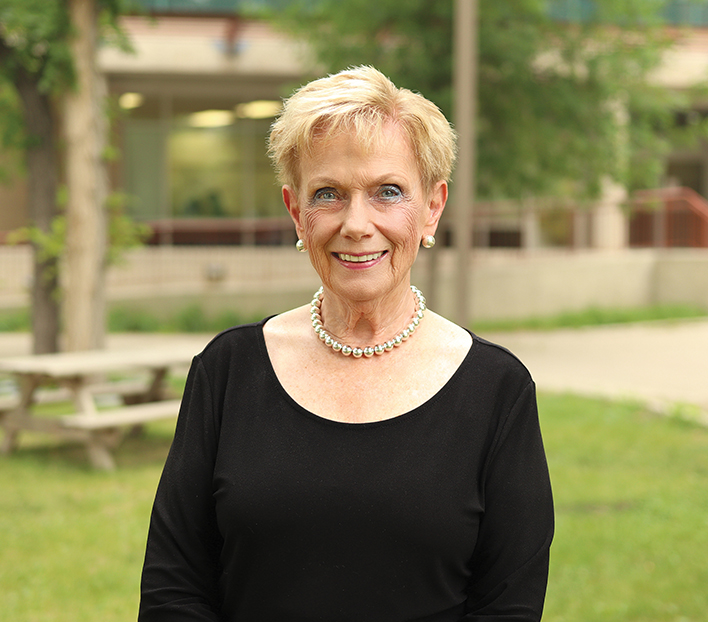
This fall, Judith Scanlan [Cert.Nurs.(T&S)/66, BN/67, M.Ed./83, PhD/96], associate professor of nursing, will mark an extraordinary 51 years of teaching at UM.
Her original students from 1974 may be well into retirement, but the four-time UM alum is still going strong, teaching leadership to graduate students and supervising their thesis work.
“I love what I do,” she says. “It gives me intellectual stimulation, a great sense of fulfilment, and I’m just so proud of the students.”
In May, the Faculty of Graduate Studies honoured Scanlan with the 2025 Excellence in Graduate Student Mentoring Award in the health sciences category. How does she sum up mentorship?
“Be authentic,” she says. “Develop relationships. Relationships are absolutely essential to my work.”
Raised in small communities in Saskatchewan and Manitoba, Scanlan followed her mother into nursing, graduating with a diploma from Regina General Hospital in 1963. She worked for a few years, but felt drawn toward higher education.
Arriving at UM, she earned a nursing certificate in teaching and supervision in 1966, then her bachelor of nursing in 1967. “I didn’t know where my education would take me, but it was the smartest thing I ever did,” she says.
At the time, nursing students – Scanlan was in a cohort of about 25 – had to climb the stairs to the top floor of what is now the UM Administration Building for their classes. “We got very fit very quickly,” she remembers.
Most courses were taught by the legendary Margaret Elder Hart [LLD/93], director of the School of Nursing from 1948 to 1972.
Students weren’t addressed by their first names, so the then-single Scanlan was “Miss Parnell.”
“You would go to Peggy Hart’s office for help with writing a paper, and she would say, ‘Miss Parnell, I think you should read this article.’” To this day, Scanlan says, she does the same thing, steering students toward resources to expand their thinking.
Scanlan earned her master’s in education and joined the full-time faculty in 1983. She completed an interdisciplinary PhD in 1996.
Her accomplishments include leading innovative revisions to the master of nursing program while serving as associate dean of graduate programs, and working with institutions in China and Cuba to help them modernize, develop and upgrade their nursing education programs.
In her international work, she was acknowledged for responding to local priorities, rather than coming in with an attitude of knowing what was best.
“You listen, and you try to meet our needs, not yours,” she was told with gratitude. She carries that with her, she says, as the essence of both nursing and teaching.
Scanlan is now working on a research study of early-career nurses’ leadership aspirations. With young nurses quitting the profession in high numbers, she says, it’s important to understand the perspective of millennial and Gen Z members of the nursing workforce.
“We know from research that if there’s a good leader in a clinical area, people will stay, because that leader has developed relationships with their people, made them feel valued and tried to meet their needs.
“That’s why I think what I do is important. I’m helping to nurture that next generation of leaders who will be able to make a difference.”
BY ALISON MAYES
